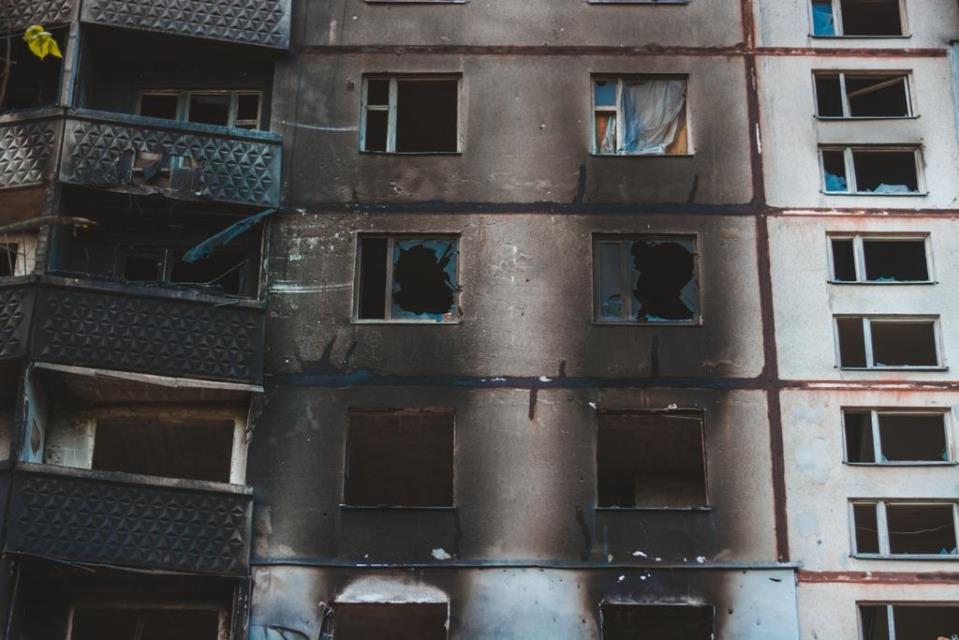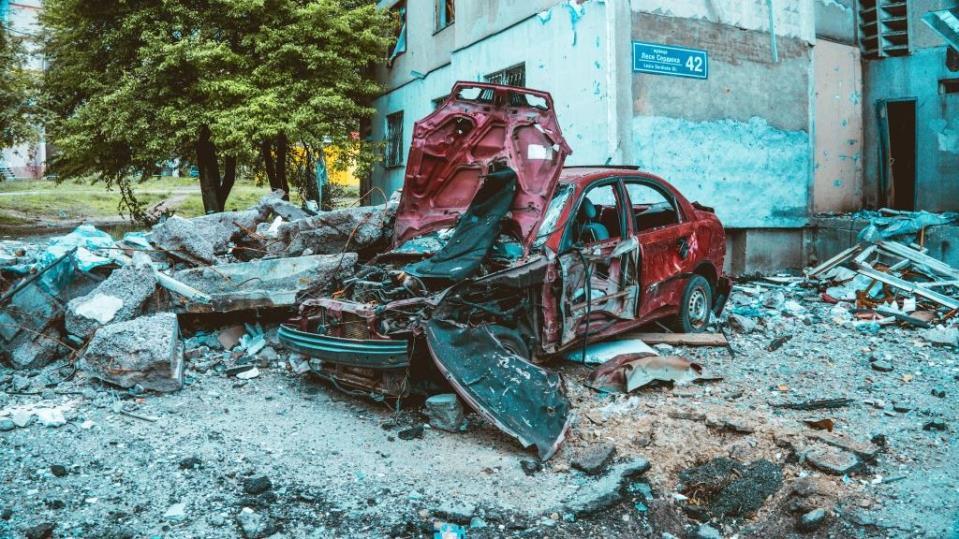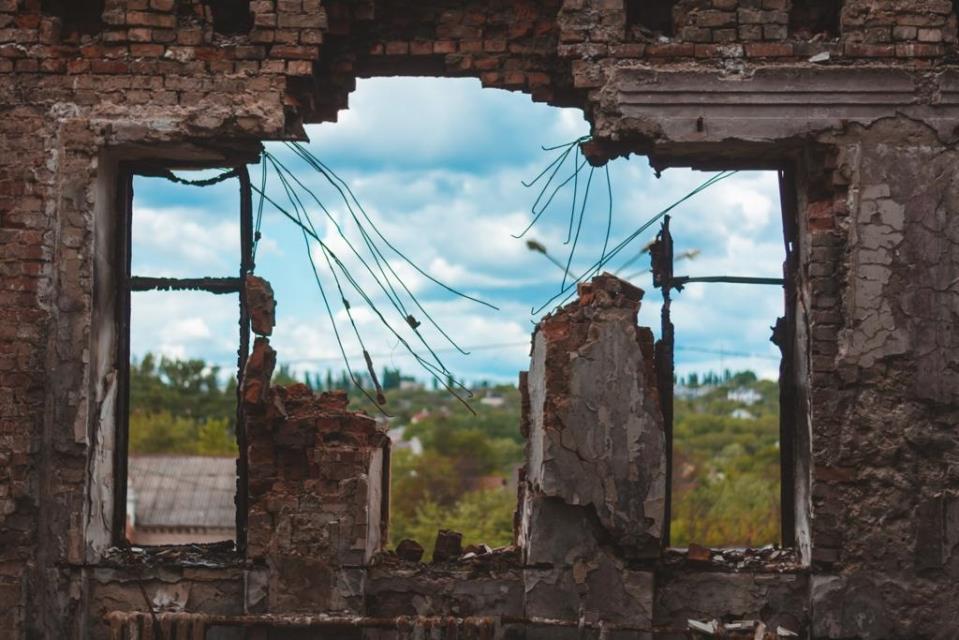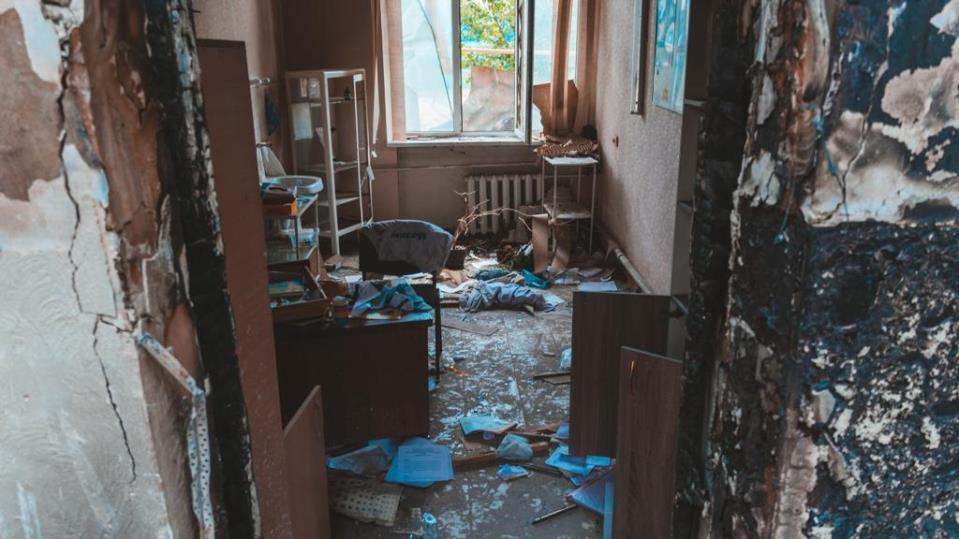Since the beginning of the war, how has your job description changed from a cardiac surgeon to a medical frontliner?
After the Russians invaded our country, particularly in the Kharkiv region, my role changed completely. We moved from our planned patient protocol to an outpatient system where we were treating wounded soldiers on a regular basis. Just yesterday, we had a case where a soldier came here with shrapnel injuries caused by a mine left behind by the Russians.
This soldier had extensive damage in his left lung and shrapnel also damaged his heart, more specifically his left ventricle. As soon as the soldier arrived at this hospital, he was treated for his severe wounds and stabilised and was then moved to a military hospital at a safer location outside Kharkiv.
The worst day so far was when this hospital received 30 wounded soldiers at once. One can imagine what a task it was to stabilise these 30 soldiers with extensive injuries and then have them transferred to another hospital at a safer location.
We are also facing problems with staff. Many of our female nurses and doctors left Kharkiv and Ukraine with their children, and rightly so. Many of these doctors and nurses worked in the paediatric wards therefore we had to stop all child admissions in this hospital. Instead, children are being transferred to Kyiv, which is now relatively safe.
One of my female colleagues, who stayed, practically lives at the hospital because she is so scared of shelling. She lived in the outskirts of Kharkiv where there currently is constant fighting going on. Her home was targeted and she never felt safe again.

The war has been going on for three months. What are the majority of the injuries that you see and what is your opinion on the war?
War is a very horrible thing and I do not wish, even my worst enemy, to go through what we are experiencing now. Unfortunately, most of our cases are still civilian casualties who are innocent in all of this. The range of their injuries varies, but one thing is for sure, the majority of them are severe cases. Most of the injuries are due to mines, artillery, shrapnel and burns and we have had to remove a lot of limbs due to irreparable damage.
The thing is that this hospital specialised in cardiac procedures before the war so we triage with a military hospital which is not away from here, on the outskirts of Kharkiv. We triage with them with regard to the patients we take as well as the health services we can offer. We obviously take in all cases when it comes to cardiac injuries.
We are also involved in training other medical professionals in specialised cardiac procedures. Recently we had people from Lviv for training.
During the last weeks we have also seen a spike of civilian admissions from the Saltivka district in Kharkiv due to the intense fighting going on there.

This war means that your job is now 24/7. How are you holding up and how do you deal with this added pressure?
We are lucky to have a very friendly atmosphere at the hospital and a very unified team. We are together 24/7 and have been here ever since the war started so we share a lot of things together namely washing of clothes, sleeping, eating and all the day-to-day tasks. We don’t go out much, so having such a good bond between us helps.
We are also very lucky that we have had no incidents between the members of the team such as fighting.
In our free time we try and live a normal life. Some of us paint, others play Playstation and we try and help each other as much as possible. Some days we also go out for walks together and enjoy the fresh air. These are the little things that we enjoy doing after working tirelessly for a prolonged period of time.
Currently the situation is slightly better than a couple of weeks ago when shelling was falling dangerously close to our hospital. For the time being we have some time to take it easier.
This is our job. We are used to it and we have also accepted the life we find ourselves in currently. It has become the new norm.

How does your family cope with all this, especially given that you haven’t seen them for over three months?
My father lives five kilometres from Kharkiv and he is coping well. Like everyone, unfortunately, he has become used to the war and can take care of himself.
My wife is pregnant and she left Kharkiv at the beginning of the war to a city which is “safer” in order to focus on the pregnancy. She is with her mother, who takes her to see the doctor and cares for her.
I worry a lot about her and her safety but the only thing I can do from here is give my utmost attention to my patients at the hospital and rest assured that at least she is far away from all the fighting.
